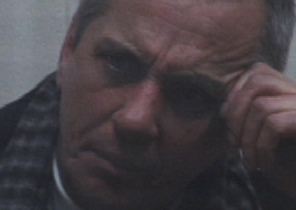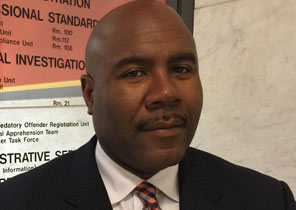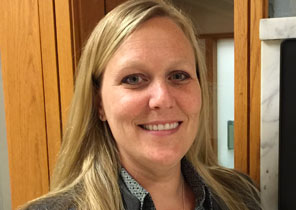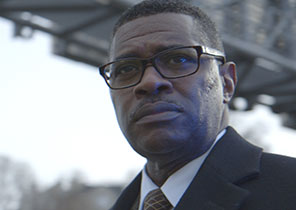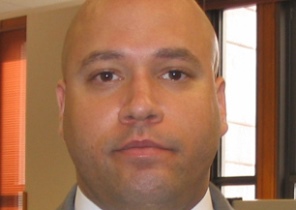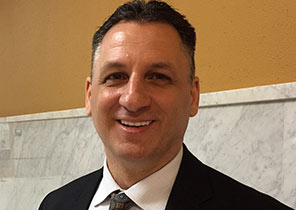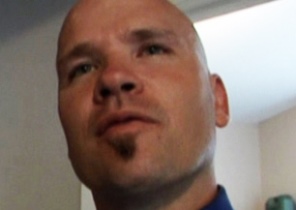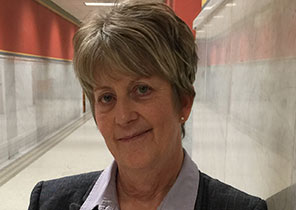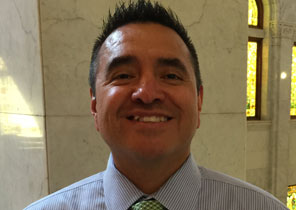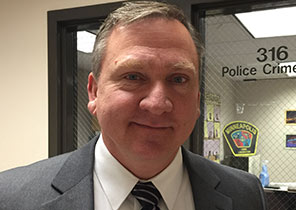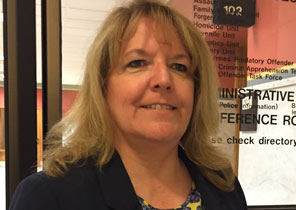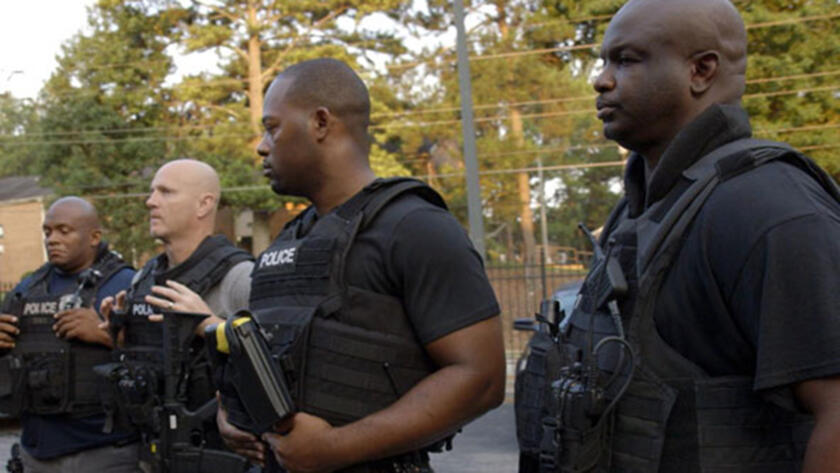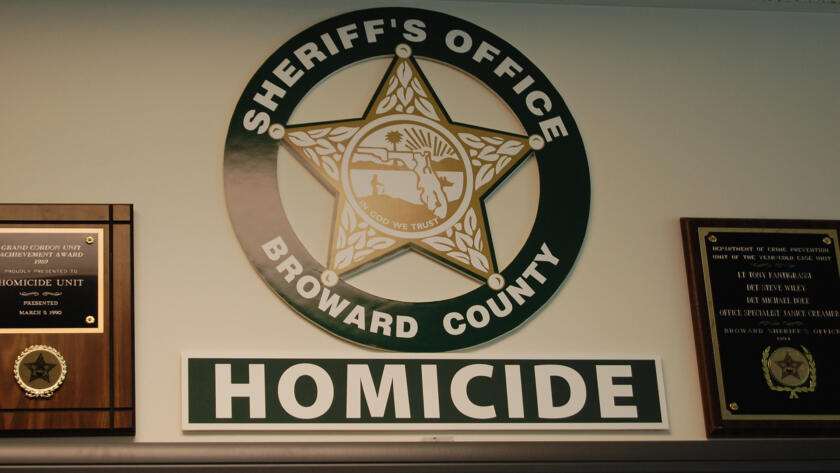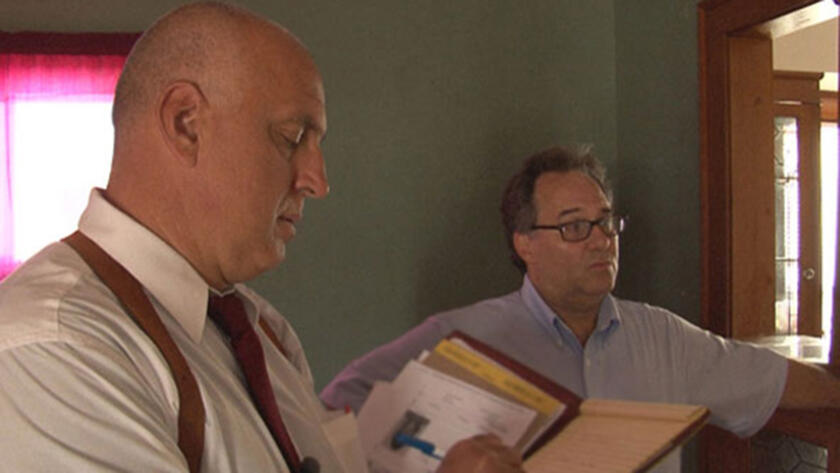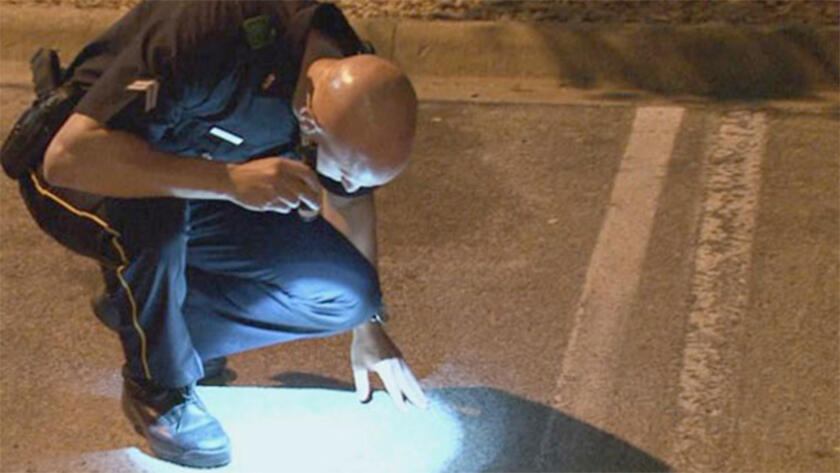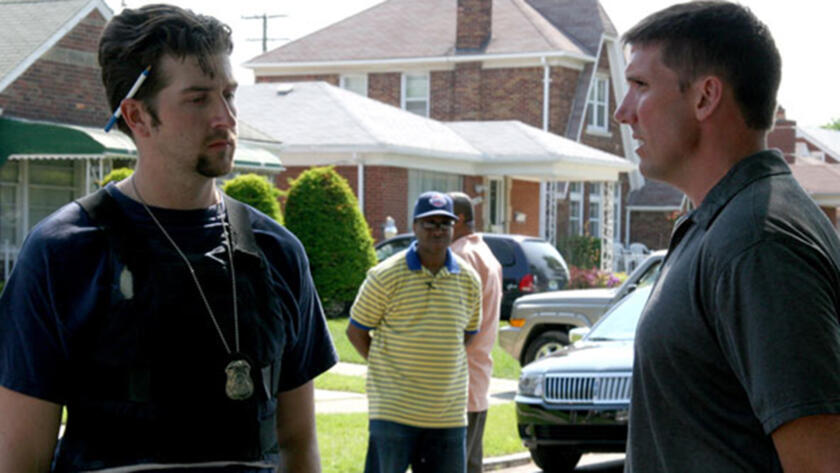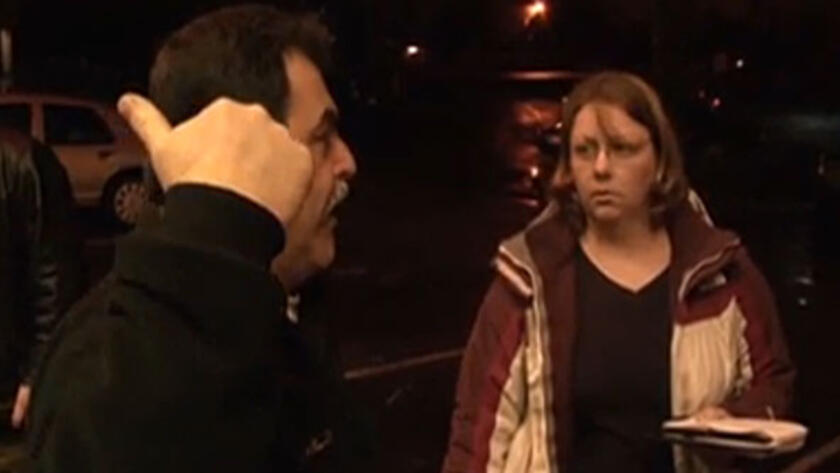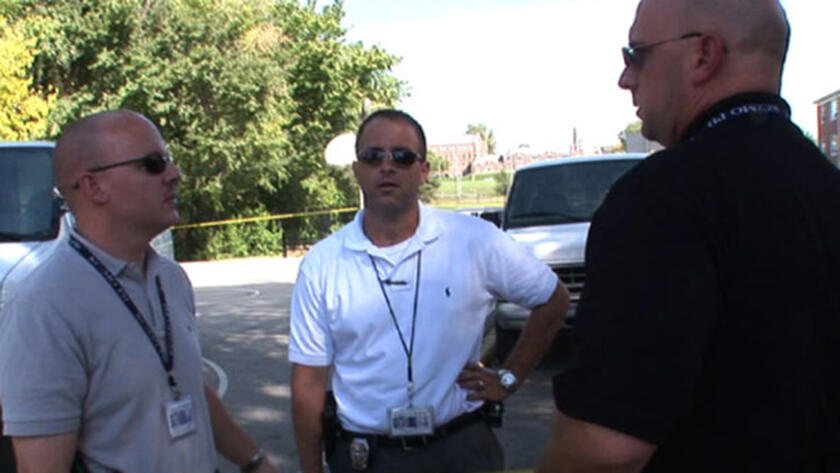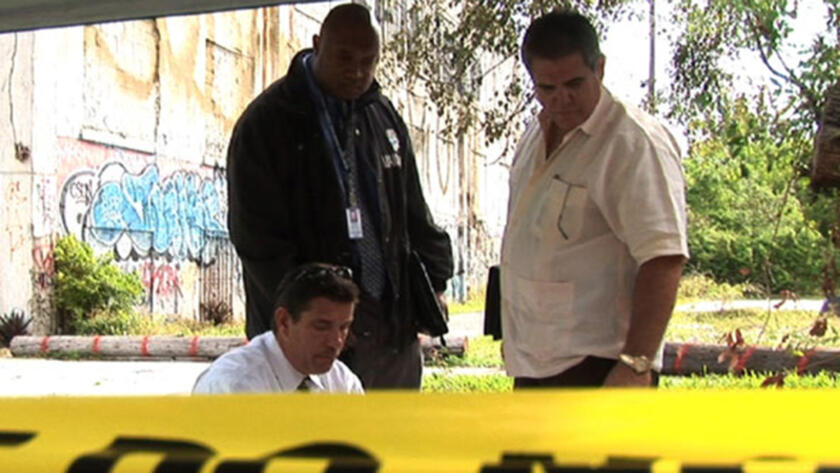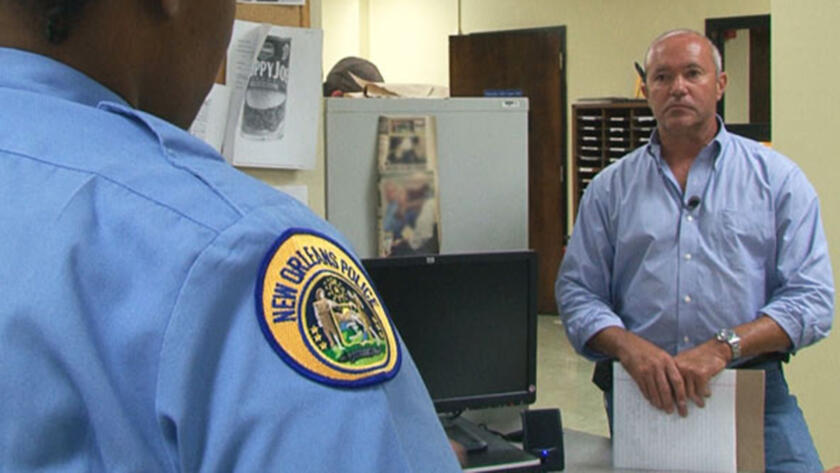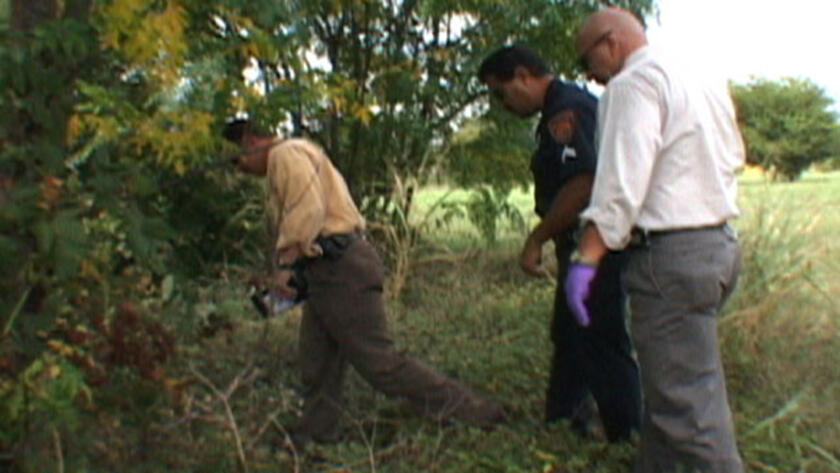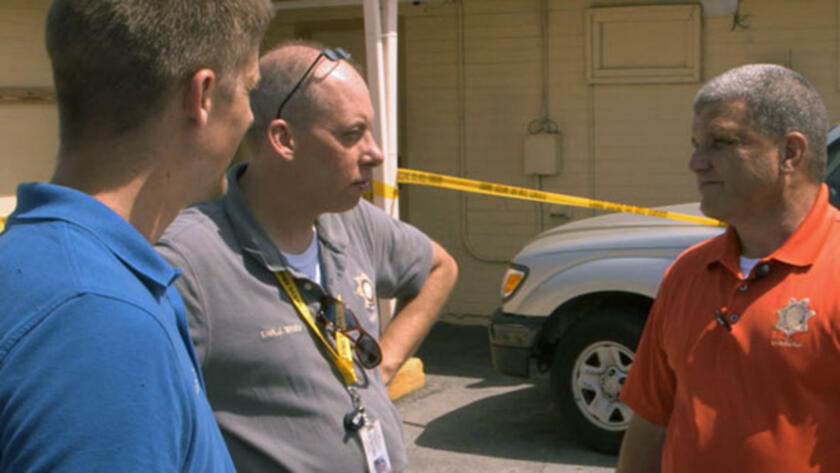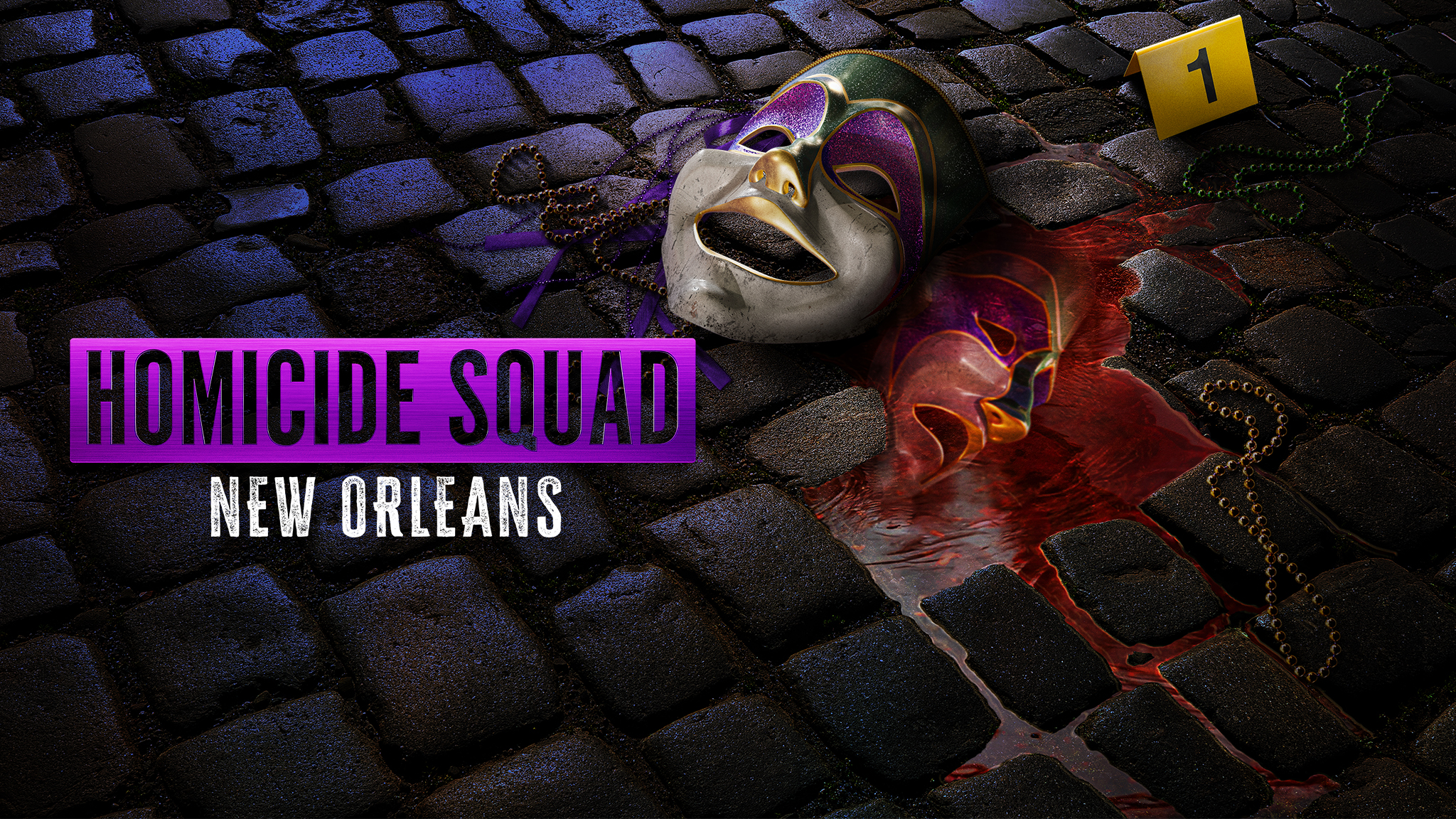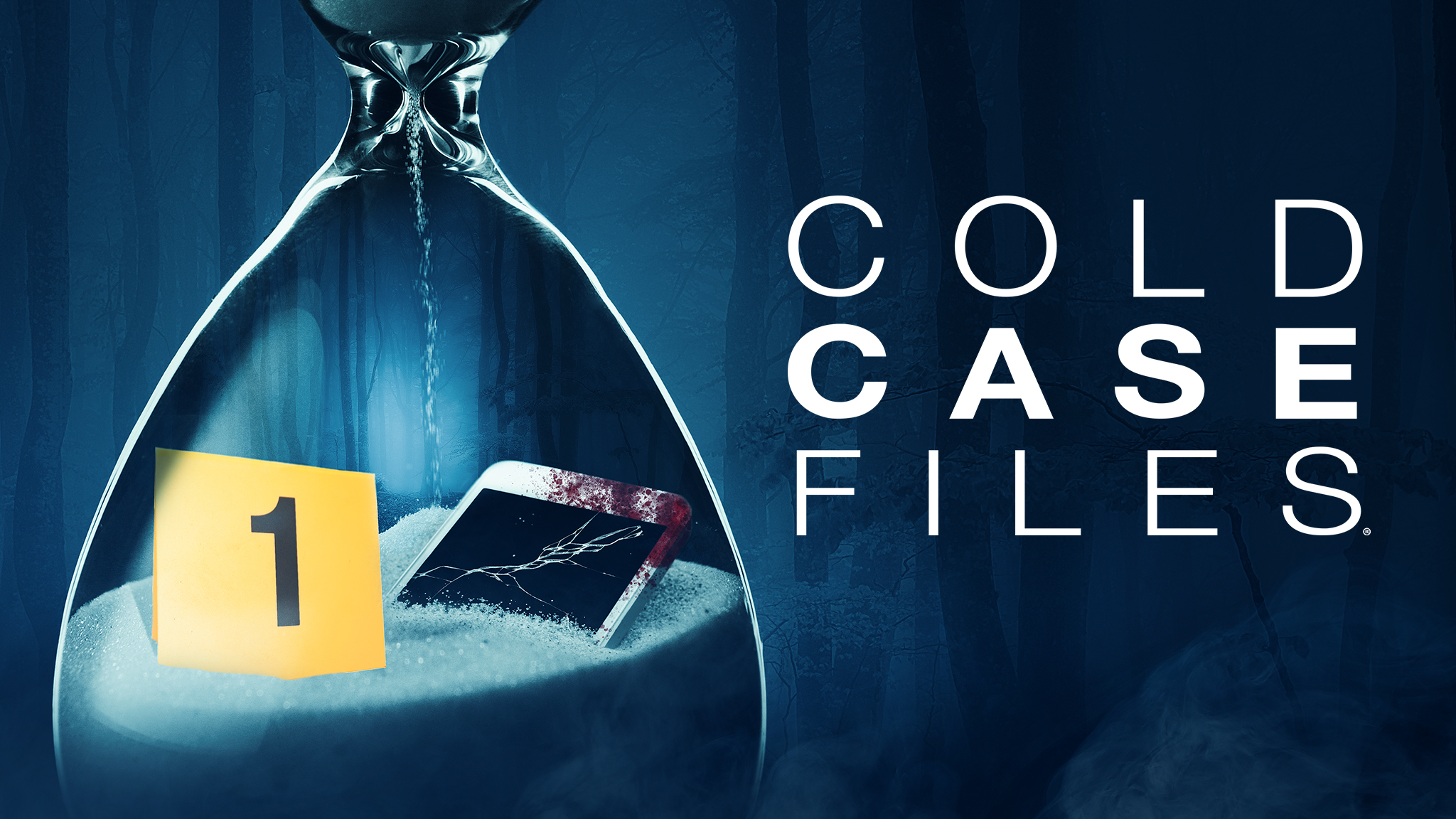Minneapolis, MN
-
Lieutenant Nancy Dunlap
Lt. Nancy Dunlap started her law enforcement career at the Hennepin County Sheriff’s Department before joining the Minneapolis PD 23 years ago.
With just three years in homicide, Dunlap has clocked in an impressive amount of hours. “I don’t think anybody can fathom the amount of hours that go into these cases. You’re going for 36 hours straight.”
Despite the grueling hours, Dunlap enjoys the creativity that working investigations require. “That’s why I’m drawn to this,” says Dunlap. “There’s so many different ways to approach a solution and resolution.”
Dunlap’s favorite part of the job is in the interrogation room, where she can best utilize her creativity to coax confessions from her suspects. “I’ll try things that are so out of my personality,” she says, “getting angry with them or being really calm and sympathetic to their plight.”
In her spare time Dunlap likes to fish, golf and garden in her backyard.
She is currently the Lt. of the sex crimes unit.
-
Lieutenant Rick Zimmerman
Lt. Rick Zimmerman has spent the past twenty-seven years in law enforcement. He credits such television shows as McCloud, Streets of San Francisco, and Colombo with sparking his interest in law enforcement. He joined the homicide unit in 1995 after having worked in narcotics and the sex crimes unit. “Once I became a cop, I’d see these homicide guys arrive. I was always impressed by what they did. There’s a dead body laying there and then, two or three days later, I’d see in the paper somebody was arrested for it.”
Zimmerman describes interviewing suspects as not only “the best part of homicide,” but also an integral part of his job. “Over the years I’ve seen a few guys come in and out of homicide. And the ones that stay, the ones that are good, I think can relate to people. They feel comfortable talking to folks. They’re not a Joe Friday kind of guy.”
Zimmerman says he was trained by “old homicide guys.” “I still carry a revolver,” he says. “I don’t think there are many cops left in the city that carry a revolver. But it’s worked for me for 28 years, so I’m not going to change.” With the new crop of homicide detectives, Zimmerman gets to experience what he refers to as “new homicide.” He explains, “It’s computers, cell phones, knowing how to get information from those sources. I think that’s the new homicide of the future. And the technology part of it. I think that’s going to be very helpful.” But Zimmerman adds that you can’t rely on computers alone. “You still need to talk to folks, and you need to burn a little leather off your shoe.” He adds, “You need to connect that piece of evidence to an individual.”
-
Sergeant Charlie Adams
Sergeant Adams was drawn to law enforcement because of the unsolved murder of his uncle. With the memory of his uncle as his inspiration, Adams has been with the Minneapolis Police Department for 30 years. He has worked the streets on Patrol as well as served as security to the Mayor.
What makes Sergeant Adams proud to be a homicide detective is “having the opportunity to investigate such a high level of crime in Minneapolis and provide closure to the families.” Homicide is not his only passion; he coaches high school football and works out daily. He also spends time with this three children and wife.
-
Sergeant Robert Dale
Sergeant Robert Dale has been in Law Enforcement for eighteen years. “My mother had a long career with St. Paul PD. She introduced me to Law Enforcement at an early age and then it grew on me.” Back in 2008 he made the move from the Sex Crimes Unit to Homicide because Dale, “had the desire to speak for those who can no longer speak for themselves.”
He believes that by contributing to the community in positive ways he can hopefully bring solace and comfort to those who have lost a loved one to homicide. Sergeant Dale values his family highly and he spends his off time with them the most. He also enjoys golf, reading and working out.
-
Sergeant Tammy Diedrich
Twenty-year Minneapolis PD veteran Tammy Diedrich has spent the past nine years in the homicide department, and currently works in the cold case unit. Originally planning to be a paramedic, Diedrich decided on a career in law enforcement in college and says, “No one in my family has been a police officer, so I am the first.”
Diedrich explains, “What drew me toward homicide, I would say, is when I was working in patrol and I would always seem to be one of the first or second squads on some homicides. And the Homicide detectives back then would always be male detectives and I thought, ‘Oh, they need some females in that unit.'” Diedrich feels being a female officer comes in handy, especially in interviews. “Women tend to be very good listeners. So it’s nice to have a male and a female detective in there. Sometimes it just takes that female touch to get the confession.”
While Diedrich has great compassion for her victims, she finds it important to separate herself from her cases. “You always want to get justice for the victims and their families. A lot of times I’ve got to step back. I try not to get too attached, because you’ve got to keep that fine line.” Diedrich never goes to court for her final verdicts, because, she explains, “Families get to read victim impact statements. And I know I would be an emotional waterfall, so I don’t attend those.”
Diedrich and her fiancee, a deputy sheriff, have been together for fifteen years. She says, “He proposed a couple years ago and we haven’t really set a date.” In her spare time she enjoys gardening.
-
Sergeant Emily Dunphy
Sergeant Emily Dunphy has spent the last eighteen years in law enforcement. Ten of those years were on patrol and three being in Gang Intelligence. “I believe it’s a calling,” she says, “I loved patrol but I really enjoy investigations and was drawn to the complexity and skills needed for homicide.” She sees homicide as a profession where detectives “are often the unseen who make a difference in people’s lives.”
When she is not working an investigation, Emily deals with the taxing aspects of her work in a variety of ways. She loves travelling when she can and spending time with her family. She has a loving husband, a son, and three grown stepchildren.
-
Sergeant Bruce Folkens
Sgt. Bruce Folkens is from a very small town in Minnesota. “I graduated with sixty-four people in my high school,” says Folkens. He has been with the Minneapolis Police Department for twenty years, and has spent the last ten in homicide. He previously worked in the narcotics unit.
As soon as Folkens joined the MPD he quickly realized he wanted to get into the homicide department. He says, “When you first become a police officer, you’re on the street in uniform. When you get called to a murder scene, you see the homicide unit show up and you know that they’re a professional, dedicated group of people. These are the best detectives we have in the police department.”
While Folkens enjoys bringing closure to victims’ families, he describes working homicide as “a privilege and a curse.” He explains, “It’s a huge privilege to give families resolution and to hold those people accountable for their actions. It’s a curse when you know who did it, but you can’t hold them accountable for a variety of reasons.”
Folkens says the Minneapolis weather provides an interesting variable for some of his cases. He explains, “We have bodies that are found outside that are frozen. And sometimes we actually have to put a tent over a body during a blizzard to keep the body from being covered from snow and therefore potentially destroying evidence.”
Folkens is married with a four-year-old son. In his spare time, he enjoys ice fishing and hunting.
-
Sergeant Erick Fors
Ten-year Minneapolis PD veteran, Erick Fors has been in homicide for a year. “I feel real fortunate to have been given the opportunity to do what I do,” Fors says. “You’re able to go out and make a difference in people’s lives.”
Fors has spent the bulk of his career in uniform patrol. Before joining homicide, he spent time in the juvenile investigations division. “It was a great place to get my feet wet in terms of investigations, and handling a case load, and honing my interviewing skills.”
Fors admits a struggle to separate his work life from his home life. “You might spend 16, 17 hours at a scene or on a case, and when you’re home your mind is still going over things. It’s hard to turn off your mind,” he says. “But I always try during my drive home to switch that off. To have that moment to shift from work mode to home mode.”
Fors is married has two young children that keep him busy.
-
Sergeant Christopher Gaiters
A twenty-two-year veteran of the Minneapolis Police Department, Sgt. Christopher Gaiters has been with homicide for eight years. Prior to homicide, Gaiters worked in a variety of units including street crimes, CRT, organized crime, and intelligence.
Gaiters credits one particular cop with sparking his interest in law enforcement. “We had beat cops who walked through my neighborhood. There was one beat cop in particular that I would walk around with all day. I learned what he did and I liked what he did.” Gaiters finds himself trying to emulate that officer even today. “When I speak with individuals within the community, I try to give them time and listen to them,” Gaiters says.
Gaiters is married with four children.
-
Sergeant Chris Granger
Sgt. Chris Granger has been with the Minneapolis Police Department for the past thirteen years. He joined homicide a month ago, after having spent the past nine years on SWAT.
Grainger credits The First 48 with inspiring him to join homicide. “About a month before I learned that I even had an opportunity to come down to homicide, I was watching The First 48,” Granger says. “There was a detective, a female detective, I believe it was from Detroit. She was interviewing a suspect in a murder and she did a great job with the interview. The guy confessed. And I thought to myself, ‘You know, that’s something I want to do.'” Granger says it is an honor to be a part of the homicide department and describes the unit as “full of a lot of experienced people with a lot of talent.”
In his brief time in the unit, Granger has noticed big differences between his work as a patrolman and his work as a homicide detective. “It’s the details. There’s a much deeper examination of the entire crime scene from top to bottom.” Granger likes the added challenge that homicide offers. “You really want to do your very best to solve the murder. There’s a family that’s never going to see their loved one again.”
A self-described “food connoisseur,” Granger feels that if he hadn’t ended up in law enforcement his career might have taken a completely different path. “I’d probably be on the Food Network or trying to get there. Maybe an Italian show. Maybe a dessert show. Something like that.”
-
Sergeant John Holthusen
“Ever since I was a little kid I wanted to be a cop,” says 18-year Minneapolis PD veteran John Holthusen. “I always thought it was just a cool job.” Holthusen calls working homicide “the ultimate game.” He says, “It’s a chance for you to take all of your experience, all of your skills, all of your knowledge, and put it towards the ultimate crime.”
Holthusen brings to homicide his experience as a SWAT negotiator, a position that has informed his approach in conducting interrogations. “One of the things that I strive to do, regardless of who I’m dealing with, is treat them with respect,” he says. “I think people want to be treated that way and I think they react in a positive way when you do that.”
Holthusen has been married for 19 years and has two teenaged daughters.
-
Sergeant Chris Karakostas
Sgt. Chris Karakostas has been with the Minneapolis Police Department for twenty-three years. He has spent the past 8 years in homicide. “My memory from when I was probably about eight, was that I was going to grow up and be a police officer. I don’t have any police officers in the family. It’s just something that I always wanted to do.”
Karakostas describes homicide as “the crime people fear the most.” In his time with homicide, Karakostas has seen the impact that homicides have on communities. He describes his work as a “privilege” and says, “You’re working for a victim that you don’t even know. And you may not even know their families yet. But in the end, when you do finally get to meet the families, all of them are grateful that you’re helping them. You can’t bring their loved one back, but you can certainly do everything that you can to try and bring those responsible to justice. And that means something to them.” He adds, “That means a lot to me too.”
In his spare time, Karakostas enjoys woodworking traveling, particularly to Greece.
-
Sergeant Ann Kjos
Sergeant Ann Kjos was born and raised in Albert Lea, MN. She was inspired to go into law enforcement after a Career Day event at her high school. She joined the Minneapolis Police Department after college in February of 1988. In 2007, she came to Homicide after stints in Patrol, Property Crimes, and Narcotics.
Sergeant Kjos finds the interrogation aspect of investigations to be the most interesting part of her job. “You always want the confession,” she says. Her number one goal in every case is to catch whoever committed the crime and see them convicted in court.
When not working Sergeant Kjos enjoys gardening and reading. She also likes spending time with her husband, a fellow officer with the Minneapolis Police Department, and their two sons.
-
Sergeant Darcy Klund
Sgt. Darcy Klund has been a Minneapolis police officer since the age of 19. Klund has been with the homicide unit for the past 15 years. “You have to have endurance to do it,” he says. “You have to have the ability to keep pushing forward and be tenacious in what you do, to see the case to the end.” To catch a killer, Klund once worked 54 hours straight, his personal record.
Objectivity is another quality Klund lists as essential to being a good investigator. “You have to have the ability to set aside your personal feelings,” he says. “However you feel about the victim or however you feel about the suspect, it’s business. You have to move forward. And you can’t get caught up in the judging.”
Klund has been married for 29 years and has two children. Outside of work Klund likes to hunt, fish and spend time with his family. He also participates in a Christian music band and sings at weddings and funerals.
-
Sergeant Scott Larson
Inspired by its variety, Sgt. Scott Larson started his law enforcement career twenty-seven years ago in Wisconsin. “What brought me into law enforcement is the fact that it’s not the same routine day in and day out. It’s something different each day, each hour.” After four years of service in Wisconsin, Larson began his career with the Minneapolis Police Department and eventually joined the Homicide Unit. Before homicide, Larson served in the Street Crimes/Tactical Services Division and the Bomb Squad where he was for eleven years, with seven of those years supervising the squad.
Larson has a particular way of interviewing suspects. “I prefer to treat suspects and witnesses in murder cases the same. I’m friendly to them,” Larson says. “Being angry with a suspect doesn’t seem to accomplish anything. When someone commits a murder I like to know their reasoning or what they were thinking at the time. Even though their thoughts and reasons at the time are irrational, in their minds many times what they did was justified.”
In his free time, Larson enjoys hobbies outdoors, bow-hunting in particular. He also enjoys spending time with his family, which consists of his wife and three children.
-
Sergeant Jane Moore
Sergeant Jane Moore was born and raised in Duluth, Minnesota. She grew up in a large family with many siblings. In January of 1989 she joined the Minneapolis Police Department, and set her sights on the goal of becoming an investigator. In 1996 she was promoted to Sergeant and began her investigation career. She has worked in the Assault Unit, the Weapons Unit, Sex Crimes and Child Abuse Units, and was a street supervisor in the 1st Precinct. In January 2015, she joined the Homicide Unit.
She is proud each time she is able to have a successful prosecution of someone who has committed murder. Sergeant Moore finds spending time with her family, skiing, and fishing help her relax from the job. She is married and has one adult son.
-
Sergeant Luis Porras
Sergeant Luis Porras has been a police office since 1992. After working patrol and narcotics he moved to homicide in 2007. He moved to homicide because he wants to do one thing, make a change. “My theory has been to help the families of the victims and work hard for them in such a tragic event.”
Porras loves the different day-to-day operations of the job and the complexity of homicide more than anything. He really is proud of how all the detectives of Minneapolis are different individuals that come together all having the same goal.
He believes it’s important to, “Take time off when you can, enjoy family, friends and life.” He does this by working out and riding his motorcycle.
-
Sergeant Chris Thomsen
Sgt. Chris Thomsen joined the Minneapolis Police Department in 1991, and transferred to the Homicide Department in 2004. In college, Thomsen studied biology and was planning on a career in medicine before he suddenly had a change of heart. He explains, “I was working with the cops at a security job in downtown Minneapolis. I got to know a lot of the Minneapolis police officers. It kind of drew me to law enforcement.”
Thomsen says the qualities one needs to be a homicide detective are, “People skills, patience and a good work ethic.” He says, “These cases aren’t rubber-stamped cases where they just fall in your lap and a suspect’s sitting on the front porch when you get there. It takes a lot of work and can take a lot of time.”
Thomsen explains that real police work is different from fictional representations. “It’s not like on TV. When you watch CSI, they can solve two murders in an hour show. We can only work with the evidence that we get and with the cooperation of victims.”
Thomsen has been married for twenty-two years. He and his wife have three children who are all actively involved in sports.
-
Sergeant Twila Villella
Sergeant Twila Villella has been in law enforcement for over 25 years. She says that in the 80’s “there was a low percentage of females working as police offers. I wanted to explore a non traditional job.” She did just that by working in Homeland Security’s Community Engagement Team, the Sex Crimes Unit, Assault Unit, and as a street supervisor among many others. This work prepared her to join homicide in March 2014.
While Twila has great pride in her ability to make a difference in people’s lives, her life isn’t all catching bad guys. She is a happy single mom with three children and enjoys golfing and roller blading in her free time.
-
Sergeant Jerry Wallerich
“I love doing what I do,” says Minneapolis Sgt. Jerry Wallerich. He joined the MPD at the age of 26, after spending four years in the military.
Wallerich has spent the past five years in the homicide unit. “When you get a case, imagine having a legal pad or a tape recorder with you 24 hours of the day,” he says. “Every time you make contact with someone, every time you talk to someone, there’s always paperwork.”
Wallerich enjoys interviewing challenging subjects during his investigation. “You can have all the modern inventions and DNA evidence, but your ability to talk to people is probably the best asset you’ll have.”
Wallerich has been married to his wife for16 years and says she’s very understanding of his demanding schedule. Together they have two daughters. When he’s not working, Wallerich loves to garden, fish and spend time with his friends and family. “You don’t hang around with a bunch of cops on your day off,” he says. “You hang around your friends so you can distance yourself from the job.”

